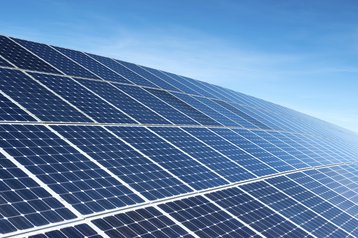Microsoft plans to use more renewable energy directly in its data centers, even though it has been carbon neutral since 2012 through the use of carbon credits and other indirect means.
Like other cloud services such as Google and Amazon, Microsoft powers its data centers using the electricity provided by the local utility grid, but reduces its carbon footprint by by paying for generation of renewable energy elsewhere, through carbon credits and power purchase agrements (PPAs). Microsoft buys anough of these so its operation is already carbon-neutral, but the company wants to move towards using more renewable energy directly, according to a blog from chief legal officer Brad Smith.
More wind and solar
Microsoft will move beyond “having data centers that are already 100 percent carbon neutral to also having those datacenters rely on a larger percentage of wind, solar and hydropower electricity over time”, said Smith. As well as using external carbon credit schemes, the company operates carbon accounting internally, so departments are charged according to how much carbon emission they cause.
The Azure data centers currently use around 44 percent renewable energy, but Microsoft wants this to reach 50 percent by the end of 2018, and 60 percent early in the next decade. Smith says the company will “keep on improving from there”.
The company doesn’t give many specifics about how it will achieve this. It already buys some renewable energy directly, such as some wind energy in Texas, and plans to buy more, although it is well known that wind and solar are intermittent sources which don’t match the continued load of a data center.
Microsoft will be investing in other sources such as biogas and fuel cells, and supporting more renewable-friendly public p9olicies, Smith said. Last week, Microsoft was one of the founding members of a renewable energy buyers’ club, the Renewable Energy Buyers Alliance (REBA), set up by BSR (Business for Social Responsibility), the Rocky Mountain Institute, the World Resources Institute and the World Wildlife Fund. REBA aims to encourage a better market for both buyers and sellers of renewable energy, which can at present be hard to source owing to a fragmented market.

